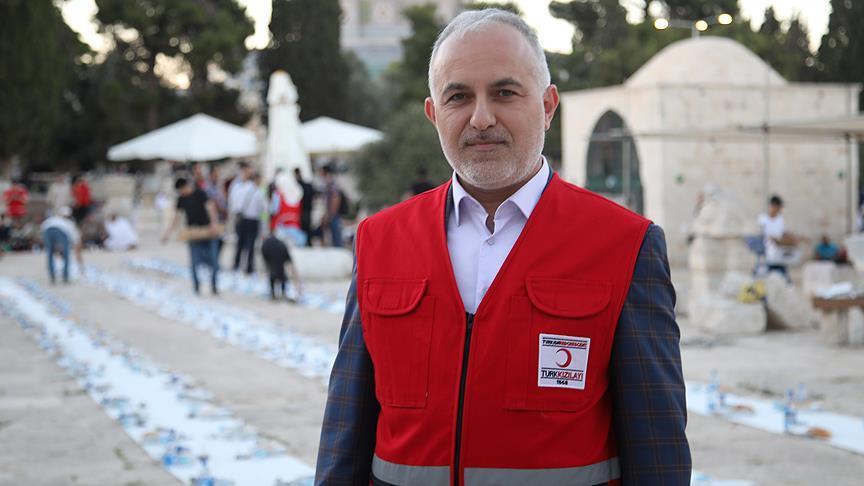 FILE PHOTO -Turkish Red Crescent head Kerem Kinik
FILE PHOTO -Turkish Red Crescent head Kerem Kinik
By Seyit Ahmet Aytac
ANKARA
Leaders of the International Red Cross/Red Crescent will gather Sunday in Turkey’s Mediterranean resort city of Antalya for meetings that will “shape the future of the world’s largest humanitarian movement,” as well as address such burning issues as Myanmar, according to event organizers.
At the General Assembly of the International Federation of Red Cross and Red Crescent Societies (IFRC) global statutory meetings, Turkish Red Crescent President Kerem Kinik is running for the European zone vice presidency, along with Germany’s Volkmar Schon.
The Turkish Red Crescent Society will host the weeklong gathering under the theme “Power of Humanity.”
About 1,500 guests from humanitarian aid groups and institutions from both Turkey and abroad will attend, according to an IFRC statement.
Turkish Foreign Minister Mevlut Cavusoglu, government officials, and major foreign guests will attend the general assembly, which will be held under the auspices of Turkish President Recep Tayyip Erdogan. He is expected to deliver a speech at the assembly.
A number of humanitarian crises, particularly in Myanmar, Somalia, Iraq, and Syria, will be discussed during the seven-day meeting, the statement said.
At the meeting, a new president, four vice presidents, and board members of the IFRC will be elected for four-year terms. Current IFRC head Tadateru Konoe is also president of the Japanese Red Cross Society.
Candidates from Italy, Norway, Jordan and Sweden are also seeking the presidency.
Senegal’s Abdoul Azize Diallo is seeking to head the African continent, and Mexico’s Fernando Suinaga Cárdenas and Venezuela’s Miguel Angel Villarroel Sierraalta are vying to head the America zone.
The Asia Pacific Region candidates are China’s Chen Zhu and Iran’s Seyed Amir Mohsen Ziaie Esterabadi.
Turkey’s Red Crescent has been a governing board member of federation since 2005. Turkey joined the International Red Cross-Red Crescent Movement in 1868.
The federation is the world's largest humanitarian organization, providing assistance without discrimination as to nationality, race, religious beliefs, class or political opinions, according to the group.
The IFRC, which was established in 1919 in Paris, has 190 members. Its objective is to inspire, encourage, facilitate and promote all forms of humanitarian activities by national societies to prevent human suffering, and promote human dignity and peace worldwide.




